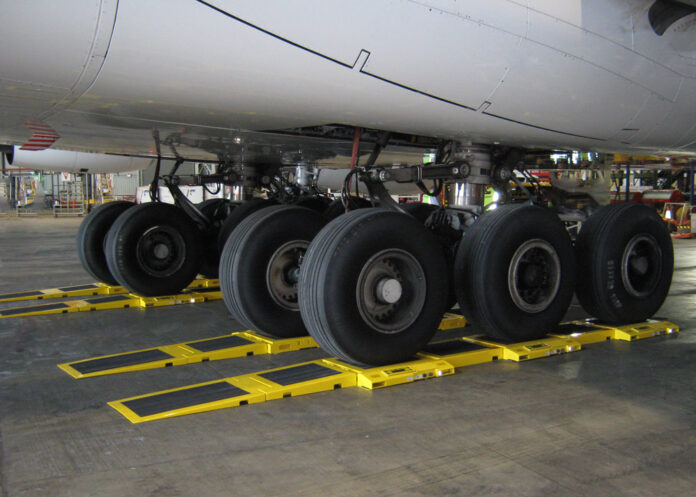In the complex realm of aviation, exactitude and safety take precedence. Achieving the perfect balance and adhering to strict weight limits are not just aspirations but non-negotiable necessities. This is where aviation weighing systems emerge as unsung heroes. These specialized weighing systems are the guardians of safety, ensuring that aircraft scales are precisely balanced and remain within defined weight parameters. In this comprehensive article, you’ll explore these pivotal factors, each a piece of the puzzle contributing to safe and efficient aircraft operation.
Factors for Weight Capacity
The weight capacity of a scale is the bedrock upon which reliable measurements are built. With their varying sizes and specifications, aircraft place diverse demands on these scales. Choosing a scale that can gracefully bear the weight of the heaviest aircraft in your fleet is the primary consideration. It’s imperative to remember that weight capacities can exhibit substantial variations, catering to the needs of both small general aviation aircraft and their larger commercial counterparts.
In aviation, precision and safety are paramount, and the scale’s weight capacity must align with an aircraft’s maximum takeoff weight (MTOW) to ensure accurate measurements, regulatory compliance, and operational efficiency, whether for a small private aircraft or a massive commercial airliner. This is a must when procuring aircraft scales.
Factors for Accuracy and Precision
In the realm of aviation, precision is the lodestar by which all decisions are guided. The smallest deviation from accuracy can have profound ramifications, potentially imperiling lives and inviting regulatory scrutiny. When selecting a precision weighing system, prioritize one renowned for its unerring perfection. Look for aircraft scales that are known for their accuracy. Calibration and certification should be non-negotiable components of your system acquisition strategy, ensuring that precision remains a constant ally.
Factors Portability and Mobility
Aviation is often characterized by its nomadic nature, with aircraft frequently moving between locations. Consequently, your chosen precision aircraft scales’ portability and ease of mobility assume paramount significance. Your system’s dimensions, weight, and assembly intricacies should align seamlessly with your need for adaptability across diverse locations.
Therefore, investing in a portable weighing system that can be easily transported and set up is essential, ensuring accurate and efficient aircraft weight measurements regardless of location. This mobility empowers aviation professionals to confidently conduct weight assessments, contributing to safety, compliance, and overall operational efficiency, be it for routine maintenance or adhering to weight restrictions at different airports.
Durability and Build Quality
Precision weighing systems for aircraft find themselves in demanding environments, enduring repeated use, fluctuating environmental conditions, and potential exposure to corrosive chemicals and fuels. To withstand these rigors, the systems must possess a robust and durable construction. Seek out systems constructed from high-quality materials and fortresses that promise longevity and reliability.
Components and materials should be selected for their resistance to wear and corrosion, ensuring that the system remains operational in various conditions. Additionally, robust construction contributes to safety, as a failure in a critical weighing system can have serious consequences in aviation. Therefore, when investing in such systems, a focus on durability and build Quality is essential to maintain operational excellence and ensure the safety of both aircraft and personnel.
Display and Data Handling
Consider the precision weighing system’s display capabilities and data handling mechanisms. While some systems feature integrated displays, others rely on external devices such as laptops or tablets for data presentation. Effective data handling contributes to the efficiency and accuracy of your weighing processes, making it a crucial consideration when selecting a precision weighing system. When deciding, it is crucial to think about how it aligns with your current systems and software.
Cost and Budget
Cost considerations are a universal facet of any acquisition strategy. Precision weighing systems encompass a wide spectrum of prices dictated by their features and capabilities. Keep in mind that when you invest in quality and precision, you’re investing in the safety and compliance of your efforts.
Conclusion
The acquisition of a precision weighing system for aircraft, or aircraft scales, is not a mere transaction; it’s a pledge to uphold aviation’s most sacred tenets—precision and safety. As you embark on the journey of selecting this essential instrument, the considerations of weight capacity, accuracy, portability, durability, data handling, and budget must be etched firmly in your mind.
By meticulously evaluating these factors and deeply understanding your operational needs, you can confidently select a precision weighing system that will stand as a pillar of precision and reliability in your aviation endeavors.










